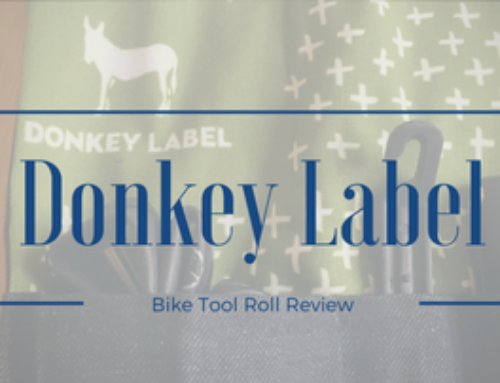 A posting that recently made its way around the internet has sparked some interesting discussion in the past few months. The poster in question is a shop owner and has instituted a policy of adding an additional 20% markup on his labor rates for work done to items purchased through eBay or items purchased overseas (such as Wiggle, Ribble and ProBikeKit.) He also goes on to say that he will report those who bring in “gray market” goods and haven't paid import on them. Lastly, he comments on the morality of purchasing goods from overseas or on eBay.
A posting that recently made its way around the internet has sparked some interesting discussion in the past few months. The poster in question is a shop owner and has instituted a policy of adding an additional 20% markup on his labor rates for work done to items purchased through eBay or items purchased overseas (such as Wiggle, Ribble and ProBikeKit.) He also goes on to say that he will report those who bring in “gray market” goods and haven't paid import on them. Lastly, he comments on the morality of purchasing goods from overseas or on eBay.
That being said, the full text of his posting (names edited) appears after the jump:
Yesterday I posted that XXXXX will have a new “corking policy”: “There will be a 20% surcharge for the initial or re-installation of items purchased through eBay stores or overseas discounters. This fee will not apply to items purchased through any U.S. dealer with a legitimate store front.” This posting has stirred up much controversy, which I think is good. This policy will be in effect from this point forward. I will also be adding this line: “we will offer a 10% discount on installation for products that are purchased through us”.
Businessdictionary.com defines Gray Market as: Genuine branded goods (called ‘gray goods') sold outside of an authorized sales-territory (or by non-authorized dealers in an authorized territory) at prices lower than being charged in authorized sales territories (or by authorized dealers).
Anytime a U.S. consumer purchase products from dealers such as Chain Reaction Cycles & Total Cycling in Ireland, or ProBikeKit.com in the U.K. is buying gray market merchandise. Unfortunately the laws in Europe are quite different, as are the channels of distribution. It has nothing to do with the value of the Dollar vs. the Euro. European bicycle shops buy directly from the manufacturer. U.S. shops buy from a distributor. The distributor buys from either the manufacturer or an importer. Not only is there a mark-up for this “middle man”, there are also shipping costs and import tariffs. Instead of charging MSRP, or slightly below it, the aforementioned dealers (and others) have decided that instead of making a good margin on a few products, they would rather make less margin on many products, in order to get there name out. These dealers are able to sell products for far less than U.S. retailers; and in many cases, less than what we can buy the products for from our distributors.
The majority of the time, the consumer has no idea what's going on. They just see that the price is less from these gray-market suppliers and think that it's a great deal. I don't really blame them, as it does look like a good deal.
The most common manufacturer to fall victim to this practice is my favorite bicycle components manufacturer, Campagnolo. As you may know, being a Campy Pro Shop is something that I'm proud of and passionate about. To learn more about Campagnolo, and there current situation in today's global climate, you can go here: Can Italian Component Maker Campagnolo Survive? | Bicycling Magazine
Everyone knows that the global economy is in great trouble, and jobs are scarce. As some of you may know, I have had to lay off J and C, and it's just me here now, trying to keep XXXXX in business through the winter. Almost every day I have some sort of gray market product come through here, usually from consumers who have trusted me to work on their bikes for years. I have been doing this since 1986, and even as a little kid before that I was doing mechanical work on bikes for my friends. Basically, it's safe to say that I know what I'm doing. However it's very difficult and frustrating to have these products brought in to me every day when I am just trying to stay in business. To this day, I have not brought home one dime from work since I opened the store in on my 38th birthday – seriously. One might say “You should be lucky that anybody is bringing you any business at all”, and maybe that is correct. However, it goes deeper than just dollars – it's about what's right.
When one buys from these companies they are: a) putting money in the pockets of somebody unknown, b) hurting the local economy, c) getting products with no warranty whatsoever, d) dealing with poor customer service after the sale – try to return something to them e) Could be in violation of U.S. Custom's import tariffs (everything over $2,000 must be reported – I STRONGLY recommend reading this: Internet Purchases – CBP.gov
The buyer becomes the importer, and is responsible for all duties paid. The seller could care less. XXXXX has reported violators, and will continue to do so. I have to do what I can to protect my business and the local economy. Whenever gray market purchasers complain about the unemployment rate, the value of the dollar, etc. they should look at themselves as being part of the problem. Could you imagine going to your favorite Italian restaurant and when the waiter says “Would you like some freshly grated parmesan cheese?” you pull out your own that you bought online and say “Yes, but I brought my own, so if you don't mind grating it over my plate for me that would be great. I bought this Italian D.O.P. Parmesan Reggiano on the internet.” It sounds silly, but it's the EXACT same thing as taking your Italian bicycle parts to the local bike shop and asking them to install them on your frame, when you could have purchased these items from your LBS.
Restaurants charge a “corking” fee for pouring the wine that the customer brought in for the exact same reason that I will charge this extra 20% on top of regular labor rates for gray market purchases. I have absolutely no problem with products that were purchased at another store that plays by the rules, even mail order. I will gladly install these items, or even used items off of eBay, for my regular labor rate. I will reward my loyal customers who purchase their products from XXXXX with a 10% discount on labor.
Thank you for taking the time to read this, and I welcome your opinions. I'm just trying to do what's right, enjoy what I do, and keep my business afloat.
In closing, I ask that the next time you consider purchasing from one of these companies, to please consider either my store or another U.S.-based shop with a storefront. All you have to do is ask for the best price.
Thanks again,
T
my Thoughts
While I appreciate he has a right to charge whatever he charges, the idea of charging a “corking fee” if items are suspected to be “gray market” is unacceptable to me (and probably most people.) Bike shops have labor rates posted, and if I walk into one with something to be installed, I expect to pay what's on the wall. I don't expect to have to furnish a receipt detailing where and when the part was purchased to prevent a 20% surcharge being tacked on. If he insists on charging a “corking fee” he should simply raise his labor rates 20% to begin with. Further on he states that items purchased from him will receive a 10% discount in installation labor, which would simply be a 30% discount from his newly raised rates.
Let's face it: people don't like being singled out. By advertising a corking fee, some people will be offended and choose to take business elsewhere. On the opposite side, a 30% decrease in labor cost (when purchasing through him) is a lot more attractive than 10%, so he may actually gain customers by going that way instead.
As for the issue of gray market items, he may or may not be incorrect as to the “gray market” status of European purchased products. If the seller has not been authorized by the manufacturer to sell product outside of Europe then yes, you're talking gray market. To my knowledge, outfits like Ribble and ProBikeKit have distribution rights in the US, so this argument is plainly false. In the case of eBay sellers, very often they are single private sellers, so asking if Joe Schmoe has distribution rights is kind of pointless.
In terms of paying duty on foreign goods, that is up to the customs agency to determine the value and collect the fee. If something goes through customs without being assessed a fee, then why does the shop owner take it upon themselves to determine if that fee was insidiously circumvented? And furthermore, the concept of “reporting violators” is inexcusable; it is not the shop's job to make a legal judgement about their customers, it is the customs officials who pass the packages through. He does have the ability to turn someone away during the warranty process though; warranty for goods purchased in Europe must go through Europe and often will not be honored in another market.
buy local
The final point I find interesting in his posting is the “buy local” plea. This is something I've advocated for quite some time (and not just for bike parts, but fruit, vegetables, meat, clothing, etc etc.) Not everything may be produced locally, but at least supporting local businesses will benefit the geographic area in which we reside. We've become a society that focuses on price above everything, ignoring service (until it is bad) and quality in order to get something cheap (and nowhere is this more apparent than buying goods directly from China.) This drives the internet/online store purchasing, even at the expense of local businesses. While price may be a concern, we should always keep in mind that if we abandon the LBS for cheaper online prices, that one day when we need a tube or a spoke replaced, they may not be there. Most LBSs will not be offended if you ask them to try and match an online price before you buy; very often they'll appreciate the opportunity, as I'm sure the shop in question here certainly would.
The main issue US shops are running into is the pricing models charged by distributors; very often the EU online shops are selling components for less than US distributor prices. What this really points to is the need to revamp the “manufacturer/distributor/retailer” model that we have in the US in order to allow flexibility in pricing. Will it happen any time soon? Not likely, but if the desire is there, it may well come up sooner rather than later.
All in all, while this owner's posting is quite filled with emotion, it also does raise a few thought provoking points which can and will foster discussion. Start the discussion below: why do you purchase online as opposed to a LBS?






Purely due to my location. I have a very small ‘mom n pop’ LBS about 10 miles away, but their range is very small and limited. All the other bigger bike stores are miles away and are particularly inconvenient to get to in terms of distance, gas and time. If I had a bigger and better bike shop nearer to me I would probably never purchase anything online.
It’s not so much that ordering online is a bad thing from time to time. The biggest issue relates to those who have the attitude that the LBS owes them something and “I won’t shop there because they’re trying to screw me on the price.” They don’t realize the margins at a LBS are extremely thin, and every sale counts. That said, those who rail against the LBS do a fair amount of damage, and that is contributing to the disappearance of many a LBS.